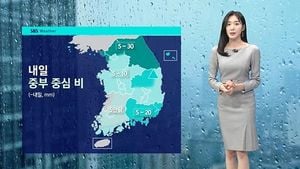The French government has faced increased scrutiny over its development aid policies, prompting the establishment of a new evaluation commission to assess the impact and effectiveness of its public assistance efforts. This move follows criticisms and concerns surrounding the allocation and efficacy of the French development aid, particularly amid declining budgets.
France's public development aid (APD) is projected to reach €15 billion for 2024, down by €2 billion from previous levels. The funding, which is part of the total €223 billion allocated by major Western donors, includes grants and loans, with the French Development Agency (AFD) handling the majority of these resources through both concessional and market-based loans.
The French Minister of Foreign Affairs, Jean-Noël Barrot, announced the creation of this commission during recent interviews, highlighting the need for transparency and accountability. "We will assess project by project to make sure our interventions benefit not only the countries we aid but also French interests," he stated. This initiative aligns with broader goals set by the United Nations, focusing on the Sustainable Development Goals (SDGs), which aim to eradicate poverty and promote sustainable development from 2015 to 2030.
Despite the optimistic narrative, the effectiveness of French development aid has been called to question. Critics suggest the aid is disproportionately directed toward middle-income countries rather than the least developed nations (LDCs), which are supposed to be the primary recipients of international solidarity efforts. Reports indicate only 24% of French aid focuses on LDCs, compared to 41% targeting middle-income countries.
This skew can be attributed to the significant presence of loans within the aid framework; the AFD operates at 85% loan financing, diverting funds to nations capable of repaying loans rather than those most in need. Unlike the U.S. Agency for International Development (USAID), which funds directly through grants, the AFD's commitment to loans limits its immediate humanitarian impact.
Environmental projects also comprise much of the development aid funding, often tied to loans without public support, rendering them less impactful on urgent human conditions. Critics, including policy analysts and senators, argue this dilution of aid priorities complicates the overall mission of alleviating poverty effectively.
The political discourse around French development aid has intensified. Critiques from the far right, including notable figures like Guillaume Bigot from the National Rally (RN), label the aid as unaccountable and excessive, questioning the rationale behind directing significant funds abroad amid domestic economic constraints. Bigot has even called for a moratorium on APD, alleging it is "costly" and "ineffective."
Yet, supporting arguments cite the strategic advantages of maintaining development aid for geopolitical influence. Over the years, AFD has established partnerships, particularly focusing on managing migration and fostering stability—key issues affecting France directly. Investments, such as the €600 million allocated for migration management since 2016, aim to tackle root causes of displacement, reinforcing the argument for development aid as not just charitable but strategically necessary.
Each year, the AFD sanctions €12 billion of financing, creating synergy by joining with both public and private investments. These partnerships yield many benefits, including job creation within France and support for local industries. For example, €3 billion per year reportedly returns to French businesses through development projects, maintaining support for the local economy.
Returning our focus to the newly established evaluation commission, its effectiveness may determine the future of France's development aid policies. Observers suggest it should clarify the separation between concessional aid intended for poverty alleviation and the loan-based funding often categorized as development aid. This classification could eliminate existing ambiguities around the actual amount of effective public development aid reaching the intended destinations.
Further adjustments are suggested, such as enhancing the proportion of grants within the aid mix to target those most impacted by poverty and improving the ethical dimensions of aid distribution. Critics argue the existing model does not adequately support the poorest populations, hindering both development and humanitarian objectives.
Consequently, the debate surrounding the AFD and its practices reflect broader discussions about the true nature of foreign aid and its role. A shift from viewing these efforts strictly as financial transactions toward recognizing them as integral to maintaining France's global influence aligns with recent perspectives articulated by international relations experts.
Detractors of France's public development aid assert it has become more about balancing budgets than actual development impact. With increasing competitive pressures from the U.S. and China, stakeholders urge the French government to clarify its objectives, focusing on genuine contributions to social and economic stability rather than fiscal concerns.
The legitimacy of France's international development efforts hinges on redefining aid structures to align with its strategic objectives and ethical responsibilities. A coherent aid strategy, distinguished transparently between grants and loans, may strengthen France's international standing and improve its response to pressing global challenges like climate change and migration.
France stands at a crossroads, facing both public scrutiny and the necessity for impactful international engagement through its aid policies. Only time will reveal whether the new commission will offer tangible improvements to the French development aid framework or continue the existing patterns under closer observation.



